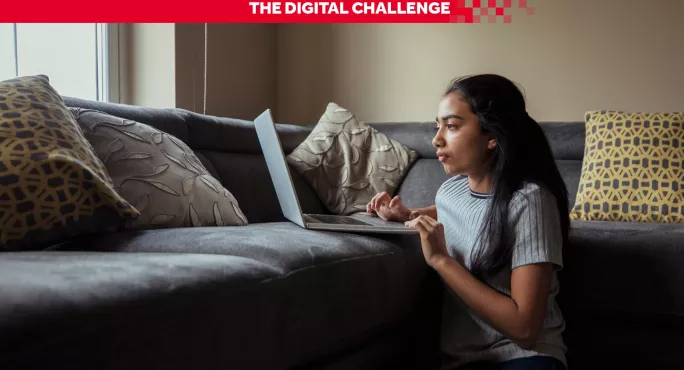The government allocated at least four thousand fewer free laptops and tablets than councils said they needed, despite encouraging local authorities to come up with their own estimates based on local demand, Tes can reveal.
And some councils were told how many devices they had been allocated before submitting a forecast to the Department for Education (DfE), our investigation has shown.
In its guidance on requesting devices through the free laptops scheme, the DfE said local authorities “should work with schools to assess which pupils require a laptop or tablet”.
Related: DfE misses free laptops target by nearly 30,000
Williamson: Free lockdown laptops are not late
Exclusive: Most national tutoring ‘should be online’
However, a Tes investigation has revealed at least 13 councils say they were assigned fewer laptops and tablets than they requested, amounting to a shortfall of 4,072 devices for their vulnerable and disadvantaged pupils who needed the technology to access online learning during lockdown.
This does not include authorities that told Tes they had received inadequate allocations but were subsequently able to amend them to match their stated need.
Tes asked all 151 education authorities in England how many free devices they had requested, and how many they had been allocated by the DfE.
Of the 110 authorities that responded, 13 councils reported a clear shortfall - including some that said they were allocated thousands fewer than they required.
North East Lincolnshire Council told Tes that it forecast it would need 3,000 laptops on 29 April, but was informed on 21 May that it had a “capped allocation” of 889 devices.
And the London Borough of Hammersmith and Fulham said it was allocated 792 laptops on 24 April, after which it submitted a forecast of 1,652. It is not known whether the allocation was amended as a result.
The investigation also revealed there was a huge variation in how requests were processed.
According to the DfE, the correct application steps were:
- Organisations were asked to complete an online form from the Department for Education’s delivery partner. The form asked the organisation to forecast the number of laptops and tablets they need, and choose between a Google or Microsoft operating system.
- Organisations were contacted by the Department for Education to confirm the number of laptops and tablets they have been allocated.
However, some councils said they made their requests based on allocations provided by the DfE, before they had an opportunity to forecast how many they would need.
West Sussex Council told Tes: “We didn’t get to forecast the number of devices we needed. The forecast was to ascertain how many of each type we required within our allocation.”
Wiltshire Council said: “No forecasts were sought by the DfE prior to the allocation of devices. A forecast after the allocation was needed, if a variation on the number allocated was requested.”
And Staffordshire County Council said: “The service advise that they were not responsible for ‘forecasting’ the number but worked to an allocated number. The services canvassed the schools to ensure this was sufficient to meet the demand.”
At least 30 councils appear to have been sent their allocations prior to telling the DfE how many devices they would need. But some reported that they submitted their forecasts weeks before the department informed them how many laptops and tablets they had been assigned.
The Tes investigation also indicated that some councils were allocated significantly more devices than they required.
The DfE said local authorities and trusts had the opportunity to query their allocations and no valid requests for increased allocations had been rejected.
A spokesperson: “We know being in school is vital for children’s education and wellbeing, which is why we have announced that all pupils should return to the classroom in September.
“We’re taking action to make sure no child falls behind as a result of coronavirus, including providing over £100 million to support children to learn at home, funding delivery of over 200,000 laptops and tablets for the children who need them most.
“We have also launched a £1 billion Covid catch-up fund to directly tackle the impact of lost teaching time as a result of the pandemic, which headteachers and school leaders have the flexibility to decide how to spend in the best interests of their students.”





